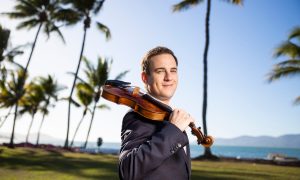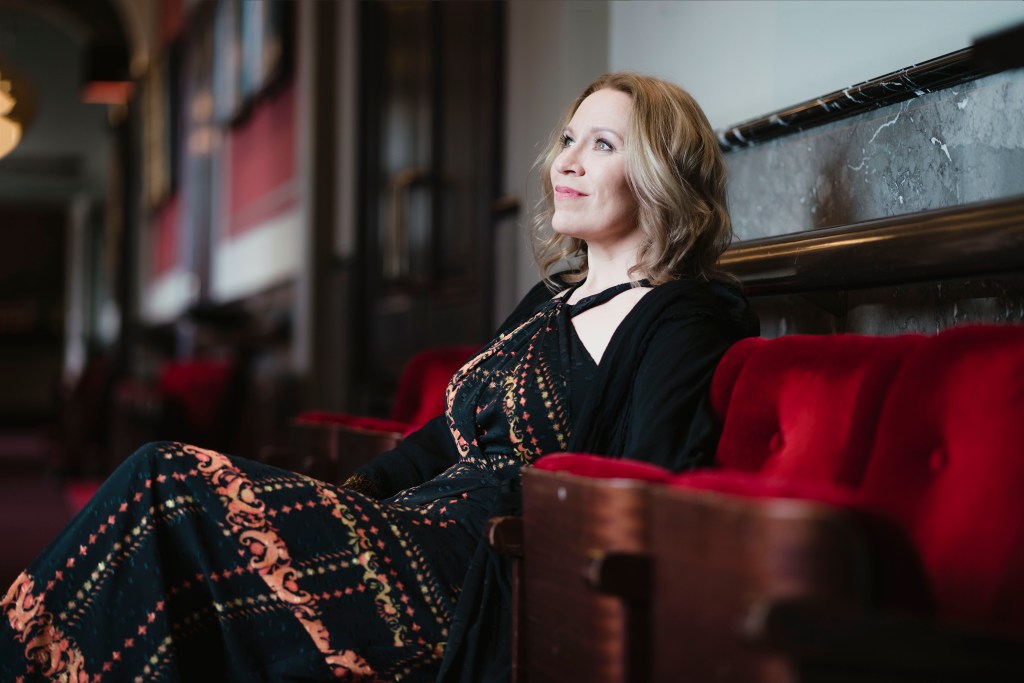Last hurrah: The Australian Chamber Music Festival’s farewell to Townsville
The Australian Festival of Chamber Music moves from Townsville to Cairns in 2026 but right now it’s basking in the sun in the North Queensland capital.

Now in its 34th year, the Australian Festival of Chamber Music is a stunning example of successful cultural tourism. This annual event, which is on now and runs until August 2, has celebrated Townsville’s history, tropical setting and proximity to the Barrier Reef, capturing the imagination and respect of the classical music industry worldwide.
By attracting domestic and international visitors in huge numbers, the AFCM has boosted the local economy and prompted the creation of similar regional music festivals combining music performance and pride of place across the country.
Independent research from Tourism and Events Queensland shows the 2024 event generated a total spending in Queensland of $20 million. There were 22,106 visitors including Queenslanders and overseas and interstate visitors.

In the opening concert on July 25 at the Townsville Civic Centre, the festival’s artistic director Jack Liebeck demonstrated his flair for surprising and daring curation. A dazzling selection of appealing yet off-the-beaten-track repertoire was superbly championed by 22 Australian and international classical music superstars. Not surprisingly, the standard was exceptional.
Incidentally, there’s a comfortable balance of male and female players this year. A noticeable increase of women composers aired on the concert platform, including Nicole Murphy, Grace Williams and Fanny Mendelssohn. Even Hildegard of Bingen, the 12th century composer and mystic, rears her head when Carolyn Sampson sang O Sparkling Starry Night in Sunday Retrospective at St James Cathedral.
You might like
William Mabo commanded an original and inspired Listening to Country. In a soothing stretch of meditative didgeridoo the audience was eased into a responsive readiness for the listening ahead.
Liebeck’s playlist mostly steered clear of traditional chamber fare from Western-Europe. Mozart, Haydn and Brahms were given the night off. Instead, Welsh, American, Spanish, Australian and Argentinian delights dominated the concert, blessed by uplifting shifts in direction.
Witty and alive is how an American journalist branded Leonard Bernstein’s song cycle I Hate Music, which was dedicated to the composer’s flatmate who was incensed by Bernstein’s constant music-making and frequently shouted out the work’s title phrase. Equally comfortable with art song and opera, Carolyn Sampson sang I Hate Music with brilliant clarity and delicious irony.

Joseph Havlat’s 64 Geese stole the show. In his droll introduction he declared his guilty pleasure is making pianists play weird stuff extremely fast. He described this absurdist work, rejigged for six hands and two pianos, as “unhinged ragtime”. It was! Olga Zado Ana-Maria and Havlat excelled in their remarkably rapid execution of deranged virtuosic passagework at finger-blurring speed.
Day Two began with Concert Conversations. This series combines a discussion between several artists and a recital. The discussion led by Jack Liebeck flowed naturally, probing orchestral players aversion to conductors and how string players adapt to the valuable instruments on loan to them. Australian String Quartet cellist Michael Dahlenburg calls his Guadagnini cello, made in 1743, Luigi, and says at first it was awkward “like an arranged marriage”.
Subscribe for updates
There was a reflection on creating arrangements of blockbuster works with reduced forces. Accordionist James Crabbe explained how he tried to capture the essence of Strauss’ Four Last Songs: “I use all the best bits and stay true to the spirit of the original.”
When a contracted player pulls out, it’s a drama, especially when the artist is to play a blockbuster like Elgar’s Cello Concerto. Charlotte Miles, based in Germany, stepped up at short notice and gave a spirited and accomplished account of this challenging work that’s forever associated with Jacqueline du Pre. Wiles’ courage and virtuosity in her moving interpretation met with wild applause.
Festival punters are spoilt for choice. On Day Two there was a children’s concert while in the Twilight Concert Series, called Horn of Plenty, the repertoire celebrated the legendary french horn player Stephan Dohr, the Berlin Philharmonic’s principal horn.
York Bowen’s Quintet for Horn and Strings was lush, tuneful and an excellent vehicle for Dohr’s marvellous playing and astonishing range of dynamics. He can produce a barely audible soft sound and commands a highly regulated rewarding crescendo, which slowly reaches a robust volume, always blending superbly with other players, in this case the Australian String Quartet.
There are plenty of events ahead, including the free Queens Gardens Concert with the Great Barrier Reef Orchestra. Beethoven, Mozart, Sculthorpe, Bruch and Gershwin are on the menu and in a touching tribute the conductor is Theodore Kuchar, who founded the festival and was its first artistic director.
The recitals at St James’ Cathedral attract a big crowd drawn by the programming and lavish acoustics (sadly lacking in the Townsville Civic Centre, where the late afternoon Ray Golding Sunset Series occurs).
There are also master classes in the AFCM’s Pathways Program, a talk by James Cook University botanist Brendan Espe called Botanical Rarities and the always popular excursion on Day Five to the Orpheus-Goolboddi Island Concert, where there’s an chance to see whales from the ferry along the way and then enjoy refreshments and an outdoor recital on the beach.
The AFCM is Australia’s most significant chamber music festival. Locals are saddened by the festival’s designated shift to Cairns in 2026, possibly prompted by Townsville City Council’s decision not to fund a new performing arts centre with bespoke and much-needed acoustics for classical music performance.
Free to share
This article may be shared online or in print under a Creative Commons licence

